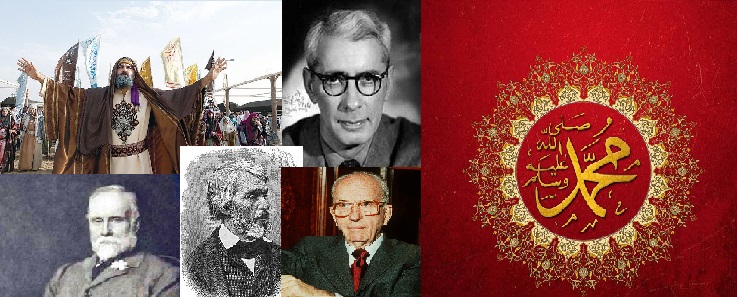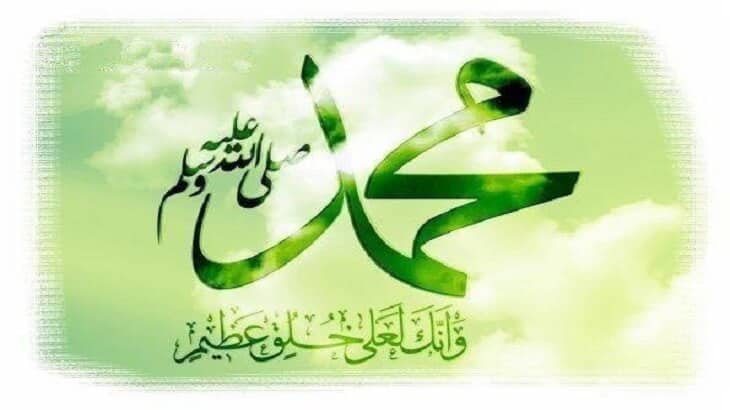The life of Prophet Muhammad ﷺ : A short biography
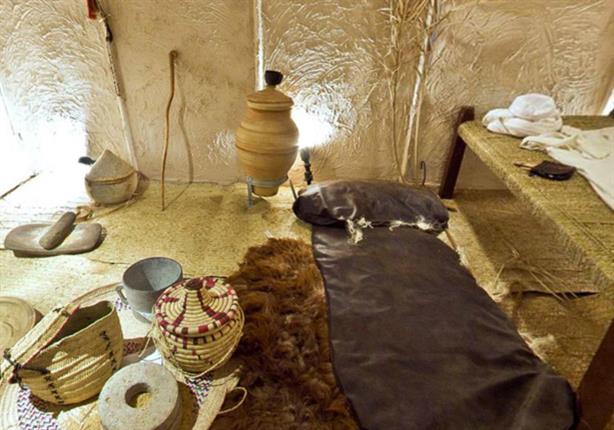
This article is a short account of the life of Prophet Muhammad(ﷺ); the Prophet was a mercy to the universe. His life still shines as a symbol of light and guidance for all time and all mankind. He was the last messenger of God sent to mankind, the Seal of the Prophets. He called for divine oneness -Là ilâha illa Allah, Muhammadun rasûlu Allah: there is no god but God, Muhammad(ﷺ) is His Messenger. This is his life and the message of Islam.
Chronology of the life of the Prophet Muhammad(ﷺ)
Below is a chronology of the Prophet’s life with the main events that took place and the approximate age of the Prophet ﷺ at the time of the events:
| Date | Age of the prophet | Major event |
| 570 | – | Death of his father, Abdullah |
| 570 | 0 | Possible date of birth: 12 or 17 Rabi al Awal: in Mecca, Arabia |
| 577 | 6 | Death of his mother, Amina |
| 583 | 12–13 | Travels several times with his grandfather to trade in Syria |
| 595 | 24–25 | Meets and marries Khadijah |
| 599 | 28–29 | Birth of Zainab, his first daughter, followed by Ruqayyah, Umm Kulthum and Fatima Zahra |
| 610 | 40 | The Quran revelation began in the cave of Hira on Jabal an-Nour, the “Mountain of Light” near Mecca. At the age of 40, Angel Jebreel (Gabriel) is said to have appeared to Muhammad(ﷺ) on the mountain and called him “the prophet of Allah”. |
| Begins calling for Islam secretly in Mecca | ||
| 613 | 43 | Begins publicly spreading the message of Islam to all Meccans after having done so in secret |
| 614 | 43–44 | Heavy persecution of Muslims begins |
| 615 | 44–45 | Emigration of a group of Muslims to Ethiopia |
| 616 | 45–46 | Beginning of the boycott of the Banu Hashim clan |
| 619 | 49 | End of the Banu Hashim boycott |
| Year of Sorrows: Khadija (his wife) and Abu Talib (his uncle) die. | ||
| 620 | 49–50 | Isra and Mi’raj (ascent to heaven to meet God) |
| 622 | 51–52 | Hijrah, emigration to Medina (called Yathrib) |
| 623 | 52–53 | Caravan raids begin |
| 624 | 53–54 | Battle of Badr: Muslims defeat Meccans |
| Invasion of Banu Qaynuqa | ||
| Invasion of Sawiq | ||
| Invasion of Al Kudr | ||
| Raid on Dhu Amarr, Muhammad attacks Ghatafan tribes | ||
| 625 | 54–55 | Battle of Uhud: Meccans defeat Muslims |
| Invasion of Hamra al-Assad, successfully terrifies the enemy into retreat | ||
| Farewell Hajj Pilgrimage | ||
| 626 | 55–56 | Expedition to Badr al-Maw’id, Dhat al-Riqa and Dumat al-Jandal |
| 627 | 56–57 | Battle of the Trench (also known as the Siege of Medina) |
| Invasion of Banu Qurayza, successful siege | ||
| 628 | 57–58 | The Meccan tribe of Quraysh and the Muslim community of Medina signed the Treaty of Hudaybiyyah, a 10-year truce. |
| Conquest of the Khaybar oasis | ||
| 629 | 58–59 | First hajj pilgrimage |
| Byzantine attack fails: Battle of Mu’tah | ||
| 630 | 59–60 | Bloodless conquest of Mecca |
| Battle of Hunayn | ||
| Siege of Ta’if | ||
| Successful attack on the Byzantine Empire: Tabuk expedition | ||
| 631 | 60–61 | Control of most of the Arabian Peninsula |
| 632 | 61–62 | Farewell hajj pilgrimage |
The youth of Prophet Muhammad(ﷺ)
Muhammad(ﷺ), the last of the prophets, was born in 570 in the arid Arabian desert, around six hundred years after Jesus (Peace be upon him), in the city of Mecca, situated in a deep valley surrounded by a curtain of jagged, brown and black mountains.
His genealogy
He is Muhammad(ﷺ), Son of Abdullah, Son of Abdul Muttalib, Son of Hachim, Son of Abdou Manaf, Son of Qousay, Son of Kilab, Son of Mourra, Son of Kaab, Son of Louay, Son of Galib, Son of Fahr, -and it is he who is nicknamed Quraich and from him comes the name of the tribe- Son of Malik, Son of Annadr, Son of Kinana, Son of Khouzaima, Son of Moudrika, Son of Ilyas, Son of Moudar, Son of Nazar, Son of Maad, Son of Adnan.
Adnan is the great-grandfather of the Prophet and descended from the Prophet Ismael, Son of Abraham. Peace be upon them all.
The solitary orphan
Muhammad(ﷺ) was an orphan. His father had died before he was even born. He was, therefore, raised and weaned in the desert, according to the Arab custom of the time. At the age of six, his mother, Âmina, died in turn, and from then on, his grandfather raised him, ‘Abd-al-Muttalib, and later his paternal uncle, Abu Talib.
Mecca was an important and well-known city, mainly because it was home to the Ka’ba, the first house ever built for mankind to glorify the one God. It had been built some three thousand years earlier by the Prophet Abraham with the help of his son Ishmael (Peace be upon him). It was here, in this deserted, arid valley, that Abraham, by divine will, had left his wife Hajar with their child Ishmael. Gradually, Mecca became a city of pilgrimage and an important cultural and commercial center through which great caravans passed north to Syria and south to Yemen. Muhammad(ﷺ) (PBUH) was a direct descendant of Abraham through Ishmael, belonging to the noble and famous Bani Hashim family.
As a shepherd, Muhammad(ﷺ) was accustomed to tending sheep and goats in the blazing sun on the hills surrounding Mecca. This practice was familiar to all those destined to bring the prophecy.
The trustworthy one
As a young man, Muhammad(ﷺ) was known to all as al-Amîn, meaning “the trusted one”, thanks to his honesty and noble character.
His uncle loved him profoundly and would take him with him on business trips to Syria. This gave Muhammad(ﷺ) the opportunity to learn how to earn a living as a merchant. He conducted his business successfully. Although he was relatively poor, his honesty and generous nature meant that he was loved and trusted by all who knew him.
At that time, one of the most honorable women lived in Mecca. Her name was Khadija. Muhammad(ﷺ) (PBUH) worked for her, and when he reached the age of 25, he received an indirect proposal of marriage from her. Although she was older than him and already twice widowed, Muhammad(ﷺ) accepted her offer. They married and lived happily ever after. She gave birth to two boys and four girls. Sadly, both boys died in infancy; it was, however, an ideal marriage, and they lived a happy family life.
The black stone
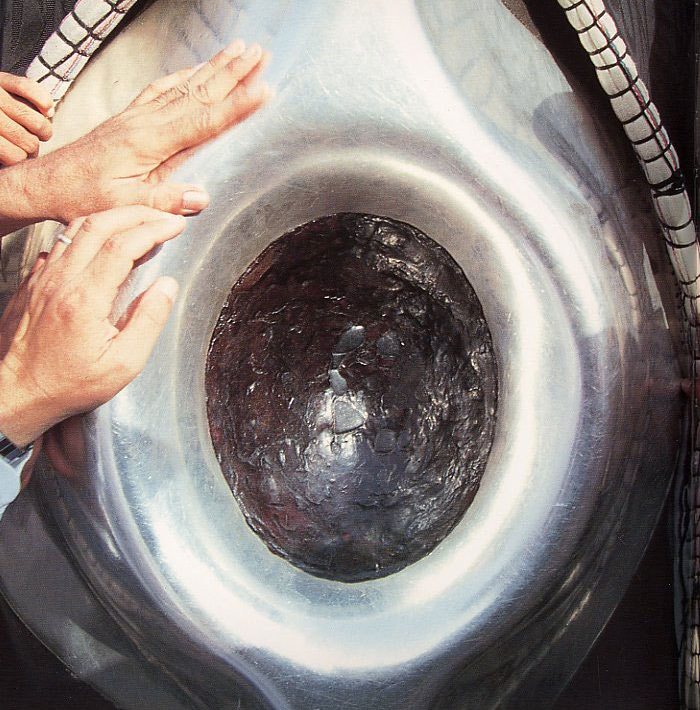
Muhammad(ﷺ)’s company and wise counsel were much sought after by all. It is reported that once, when the Ka’ba was being repaired after violent floods had devastated its walls, there was a disagreement between the four main tribes of the Quraysh as to which of the four would have the honor of replacing the sacred black stone.
An argument was about to break out when one of the elders proposed, “Let the first person who enters be our judge!” To their delight, the first to enter was Muhammad(ﷺ). “It’s al-Amîn, the honest one,” they cried. Muhammad(ﷺ) was made aware of the situation and asked for a piece of cloth to be brought to him. He placed the black stone on the cloth and asked the members of each tribe to hold a corner of it so that he could lift the stone, and he himself put it back in its place. He thus cleverly ended the quarrel and avoided the risk of war.
The Arabs of the time had great qualities. They were courageous, generous, and loyal, yet they often found themselves involved in petty disputes, quarreling incessantly, ready to spill blood at the slightest opportunity. They had little respect for the weak, the orphan, and the widow and frequently indulged in drinking and frivolity. Because of the important status given to boys, fathers had the detestable habit of burying little girls they didn’t want at birth. Incidentally, polytheism was at the root of these evils.
Polytheists and IDOLS
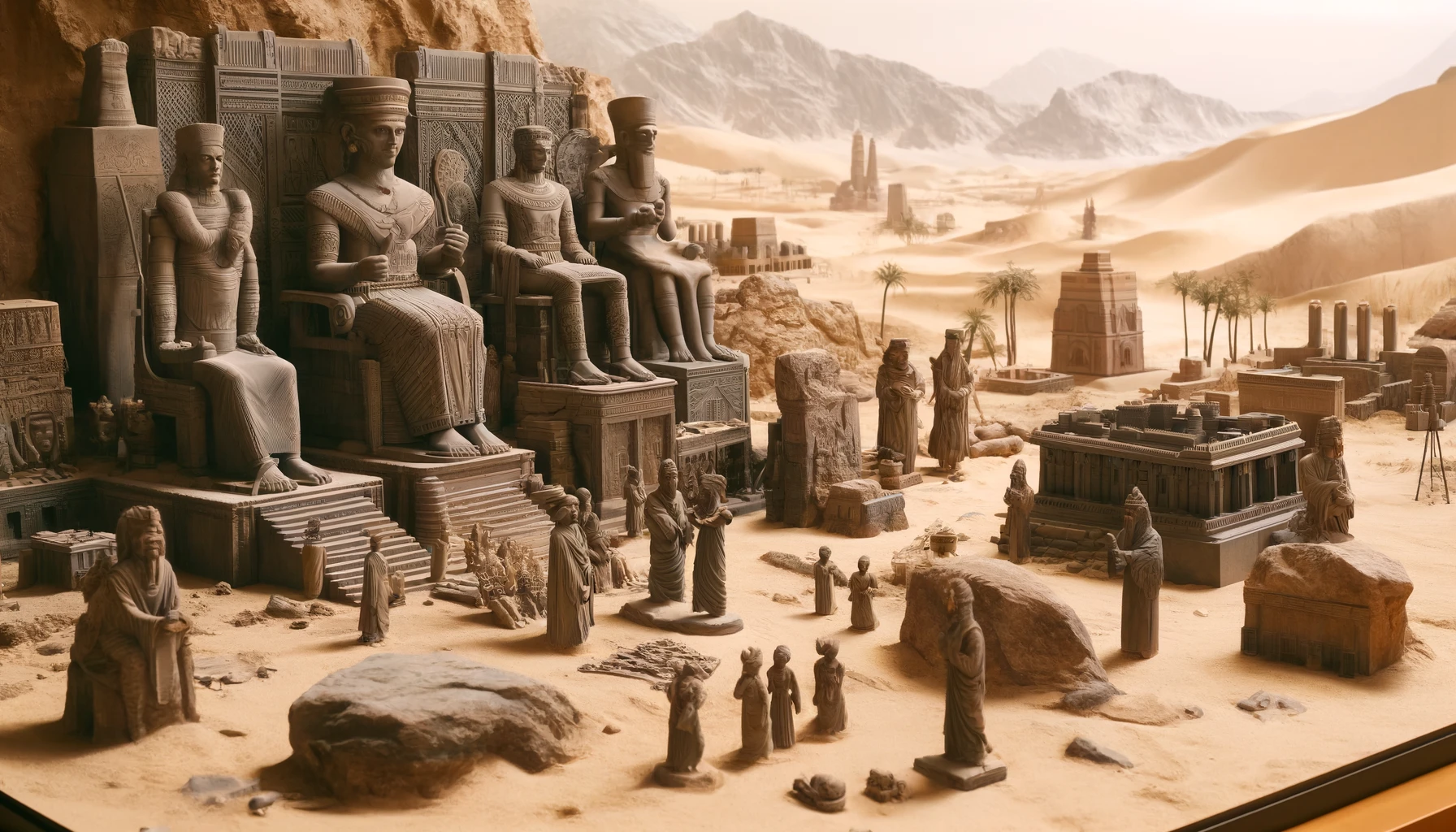
Polytheism, the worship of idols, was practiced by almost the entire population at the time. The eternal religion inherited from Abraham (Peace be upon him) – the worship of the One God – had, over time, been buried and forgotten. Over the years, some three hundred and sixty idols and statues representing false gods had been installed in and around the Sacred House and were worshipped as lords and intercessors. Even the followers of Moses and Jesus had departed from the original monotheism of Abraham and had divided into separate tribes and sects.
Muhammad(ﷺ) was an exceptional personality. He took part in none of the polytheistic practices. Early on, he developed the habit of retreating to an isolated cave in the vicinity of the mountain called Hirâ’, not far from Mecca, to purify his heart and pray for the search for Truth. He contemplated the universe’s signs with only the sound of the wind in his solitude.
The prophecy
IT WAS THERE, on a night in the month of Ramadan, at the age of 40, that the Most High called Muhammad(ﷺ) to his service. On that night, known as Laylatu al-Qadr, “The Night of the Decree,” the Spirit of Truth descended with God’s decree and a light for mankind: the Quran. A new chapter for the world was about to begin.
The first verses
The waning white moon shone brightly in the sky when Muhammad(ﷺ) suddenly perceived a presence. In the silence of the night, a voice called out, “Read! “
Muhammad(ﷺ) was distraught. “I can’t read,” he replied. When the voice repeated the command, it was as if the earth had begun to tremble: “Read!”
– “I can’t read.” He felt paralyzed with fear, unable to move. “Read!” repeated the impressive voice. “What should I read?” Then, suddenly, he felt liberated; time and space were as if suspended, heaven and earth reunited. Peace – as humanity stood on the threshold of a new dawn.
These were the first five wonderful verses of the glorious Quran. The voice was that of the Angel Gabriel, the spirit of Faith and Truth, who was sent to the last of God’s prophets. Muhammad(ﷺ)’s mission had just begun, the Messenger of God, a blessing for the Worlds.
Prophet Muhammad(ﷺ) had just received the first words from his Lord on Mount Hirâ’. He raced down the mountain, his face glistening with sweat, his heart beating wildly. The verses of the Quran still echoed in his soul. What kind of vision had this been? What words had been spoken? He ran to Khadija, exclaiming, “Cover me! Cover me!” She comforted him tenderly as he recounted what had just happened to him. “I fear some evil will befall me!” he said. “Never, by God,” his wife replied with faith, “God will never wish you harm. You have good relations with your family, help the poor and needy, welcome your guests generously, and assist the unfortunate who deserve it.”
A few days later, Khadija took him to her cousin, a learned scribe named Waraqa, who was well-versed in both the Torah and the Gospel. After describing the famous night to him, the old man, without hesitation, asserted that it really must have been an appointment with the Angel Gabriel, the same one God had sent to Moses: “I wish I were young so I could live to see the time when your people will push you away,” the old man told him.’ He knew that the Prophet, mentioned in the Scriptures, had arrived.
Thus began the mission of the last of the Prophets (es), who would henceforth influence the whole world, heralding a new age in the history of human consciousness and progress. Thus, Islam was born.
The first believers
The first to believe in the Prophet was his wife Khadija, soon followed by Muhammad(ﷺ)’s cousin ‘Ali, son of Abu Talib, who lived with them. Some were violently opposed to admitting Muhammad(ﷺ)’s mission, but others opened their hearts wide and accepted the call, following the example of Muhammad(ﷺ)’s close friends Abu Bakr, his servant Zayd, and so many others. After a while, as the Revelation of Quranic verses continued, the Prophet was asked to publicly deliver the message of Islam and recite the verses that had been revealed to him.
One day, the Prophet (PBUH) climbed to the top of Safa, a small mountain close to the Sacred House, and spoke to his people, the people of Quraish. As they gathered around him, they asked him what the reason was. Muhammad(ﷺ) replied: “
- Tell me, O people of Mecca, if I told you that I saw an army moving against us from the other side of the hill, would you believe me?
- Certainly,” they all replied, “because we trust you, you never lie.
- Then,” Muhammad(ﷺ) continued, “know that I am a warner and that I am announcing to you a terrible punishment… God has asked me to warn you, who are close to me, and I can guarantee you nothing good on earth or in heaven.”
Hearing this, the crowd became dumb with astonishment. As they stood motionless under the blazing sun, Abu Lahab, the Prophet’s uncle, then cried out, “May you perish!” They all turned their backs and dispersed, leaving Muhammad(ﷺ) alone.
The rejection
The people of Mecca heard these new words calling them to submit to God to enter Islam. But divisions soon arose. Many rejected the blinding Truth. After many years of acknowledging his kindness and piety, they insulted and ridiculed him and even called him crazy. Despite this, Muhammad(ﷺ) never answered insult with insult.
Nothing could stop him. He patiently continued to invite his fellow citizens to embrace the first pillar of Islam: that there is no god but God and that he was His Messenger.
The more he called on his people to submit to the one God, the more the chiefs of the different tribes were enraged, saying:
What surprised them most was that these miraculous new words – the verses of the Quran – came from a man they knew to be illiterate. Muhammad(ﷺ) had never learned to read or write; few Arabs were capable of it at the time. So how could these words, unparalleled in their beauty and arrangement, have come from his mouth?
The chiefs of Quraish, Mecca’s most influential tribe, became increasingly irritated. At one of their meetings, they decided to ask Abu Talib, the Prophet’s uncle and protector, to try to stop Muhammad(ﷺ) in his mission to call people away from the customs and religion of their fathers.
When Muhammad(ﷺ) heard this, he was very moved, for he felt great love and affection for his uncle, but his response was serene and calm: “By God! If they placed the sun in my right hand and the moon in my left, I would never abandon my mission until God gives me victory or until I die .”
Slowly, the number of Muslims guided by the Prophet increased. The first group of believers followed the path of Truth and submission. Their love of the Truth shone forth, illuminating the pale pagan society of the time. The pursuit of material goods—the main objective and object of all worldly ambitions—had been replaced by the search for eternal light and wisdom. “Whoever seeks the path of knowledge, God will make the way to Paradise easy for him,” said the Prophet.
The Persecution
Muslims were persecuted from the earliest days of Islam. Those who were poor, those with little means and no social status, suffered most cruelly. They were laughed at and mocked, and when that wasn’t enough, non-believers even resorted to physical attacks and torture. Stones and garbage were thrown at them. A few hundred Muslims managed to leave Mecca, abandoning their homes and seeking refuge in nearby Abyssinia, a Christian land.
Those who remained suffered increasingly violent persecution. Bilal, a black slave from Abyssinia who had converted to Islam, was bound to the burning sand on his master’s orders while huge stones were placed on his chest. “Where is your God now?” they asked, mocking him. But no amount of torture could shake his faith. Believers would never renounce Islam.
The boycott
A new tactic was put in place by the rulers of Mecca. The Prophet and his Companions were driven out and forced to live in an isolated part of the city. No provisions reached them, and they had to suffer from hunger and thirst for long periods, eating almost nothing for several days, even weeks. This embargo began in the seventh year of Revelation and lasted for three years. Nevertheless, thanks be to God, a few people of goodwill among the persecutors could no longer put up with this inhuman practice. The situation changed somewhat, and the ban was finally lifted.
People could once again observe and listen to the Prophet (pbsl). He was a handsome man of medium height with black hair and a beard. His teeth sparkled when he smiled. But it was, above all, his character and personal conduct that made the greatest impression. His words were always full of advice and wisdom. The habits and traditions of Arabian tribal societies were shaken and reconsidered in the light of the incredible spirit of his teachings. He said :
The kindness and mercy of Muhammad(ﷺ)’s personality was unsurpassed. When he passed by a group of children, he would often stroke their heads affectionately and sometimes even start playing with them.
He gave a place of honor to women. In one leap, Islam gave her a place in society that was unimaginable at the time, guaranteeing her rights and freedoms found nowhere else.
“Paradise lies at the feet of mothers,”
he said. But most persisted in their ignorance and continued to reject him.
It was in the tenth year of Revelation that Muhammad(ﷺ) experienced the most intense grief of his life. His uncle Abu Talib, who encouraged and protected him, died. This was followed closely by the death of his beloved wife, Khadija. Adding to this grief, the people of Ta’ if, to whom he had gone to proclaim the message of Islam, rejected him unmercifully, throwing stones and injuring him. During this period of extreme difficulty, the Prophet (PBUH) was granted the greatest honor by His Lord the Most High, the miraculous Night Journey.
The night journey
During that extraordinary night, the Angel Gabriel came to Muhammad(ﷺ) and woke him up. He invited him to ride on an animal named al-Buraq. Immediately, he was transported at the speed of light to the al-Aqsa mosque in Jerusalem. There, in that sacred place in the heart of Jerusalem, Muhammad(ﷺ) met an assembly of prophets from the past and guided their common prayer.
The Angel Gabriel then took him up through the seven heavens to witness the invisible mysteries of the universe and to contemplate certain signs from God.
Muhammad (ﷺ) ascended through the successive heavens with the Angel Gabriel, meeting various prophets along the way, including Jesus, John, Joseph, Aaron, and Moses (peace be upon them). Finally, they reached the seventh heaven, where he met Abraham (ﷺ), who bore a remarkable physical resemblance to the Prophet Muhammad (ﷺ).
Then Gabriel appeared again to the Prophet in all his light and angelic splendor. They had reached the Jujube Tree of the utmost limit, at the highest point of the heavens, the Sidrat al-Muntaha, surrounded by mysterious colors, perfectly indescribable.
Muhammad(ﷺ) had risen to the zenith of divine heights. It was during this night of supreme elevation of body and spirit that he received from God, the Most High, the second pillar of Islam: the five daily prayers, and something that had not been given to any Prophet before him, the whole world as a space for prostration and prayer for all Muslims. It was al-Isrâ’ wa al-Mi’râj, the Night Journey and the Ascension.
On his return the next morning, after hearing the account of the miraculous journey, the unbelievers took the opportunity to mock Muhammad(ﷺ) again. They had called him a madman, a soothsayer, a poet; now they called him a liar. Persecution redoubled, and life became increasingly unbearable for the Prophet and his Companions. They were in constant danger, so they decided to prepare to leave Mecca in peace.
The Hijrah
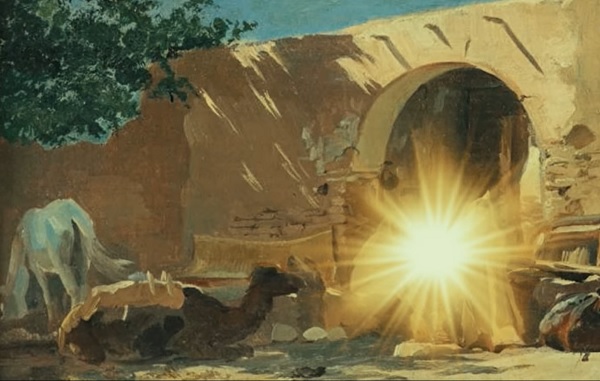
A delegation of new converts from the town of Yathrib, some four hundred kilometers from Mecca, offered their home and welcome to all Muslims who wished to live in safety in their town. They particularly wanted the Prophet (ﷺ) to bring peace to their city, which was plagued by endless tribal feuds.
The Prophet agreed. This was known as the Hijrah, the migration. It was a decisive moment in the history of Islam, the beginning of the Islamic calendar, the birth of the first Islamic state; Yathrib was called “the city of the Prophet,” Madinatou an-Nabi.
Muhammad(ﷺ), the Messenger of God, after thirteen years of calling to Islam and having suffered bitter persecution at the hands of the pagan Arabs, left Mecca in the company of a community of Muslims and went to where he had been offered peace and security, the city of Medina. Thus began the second major phase of Muhammad(ﷺ)’s mission and life.
The first constitution
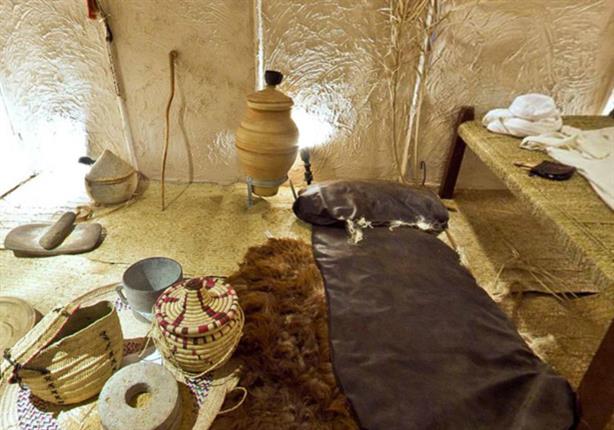
In Medina, the Prophet ﷺ became the head of state. Here, Islam flourished, and a new social order was born. Its foundation was the mosque. It was here, too, that the Islamic vision of peace between all peoples of the earth was developed, regardless of faith or race. It was also here that the first constitution and charter of human rights and freedoms took shape. It guarantees every citizen freedom, security, and justice.
- Freedom of conscience and worship for Muslims and non-Muslims alike.
- Security and protection against any threat or attack from outside.
- Justice and the abolition of all crimes and immoral practices.
Charity was the defining characteristic of this new society. Greed and selfishness were replaced by compassion and concern for all living creatures.
There, in Medina, two other important pillars of Islam were established. Muslims were ordered to pay zakât, the purifying social tax required to help the poor and needy and to fast for the month of Ramadan. During this period, the Prophet ﷺ remarried. He was in demand by many wives, but apart from ‘Aisha, the daughter of Abû Bakr, his wives were generally widows of Muslims killed or martyred. However, he always kept a special place in his heart for Khadija, his first wife and beloved companion.
People of the book
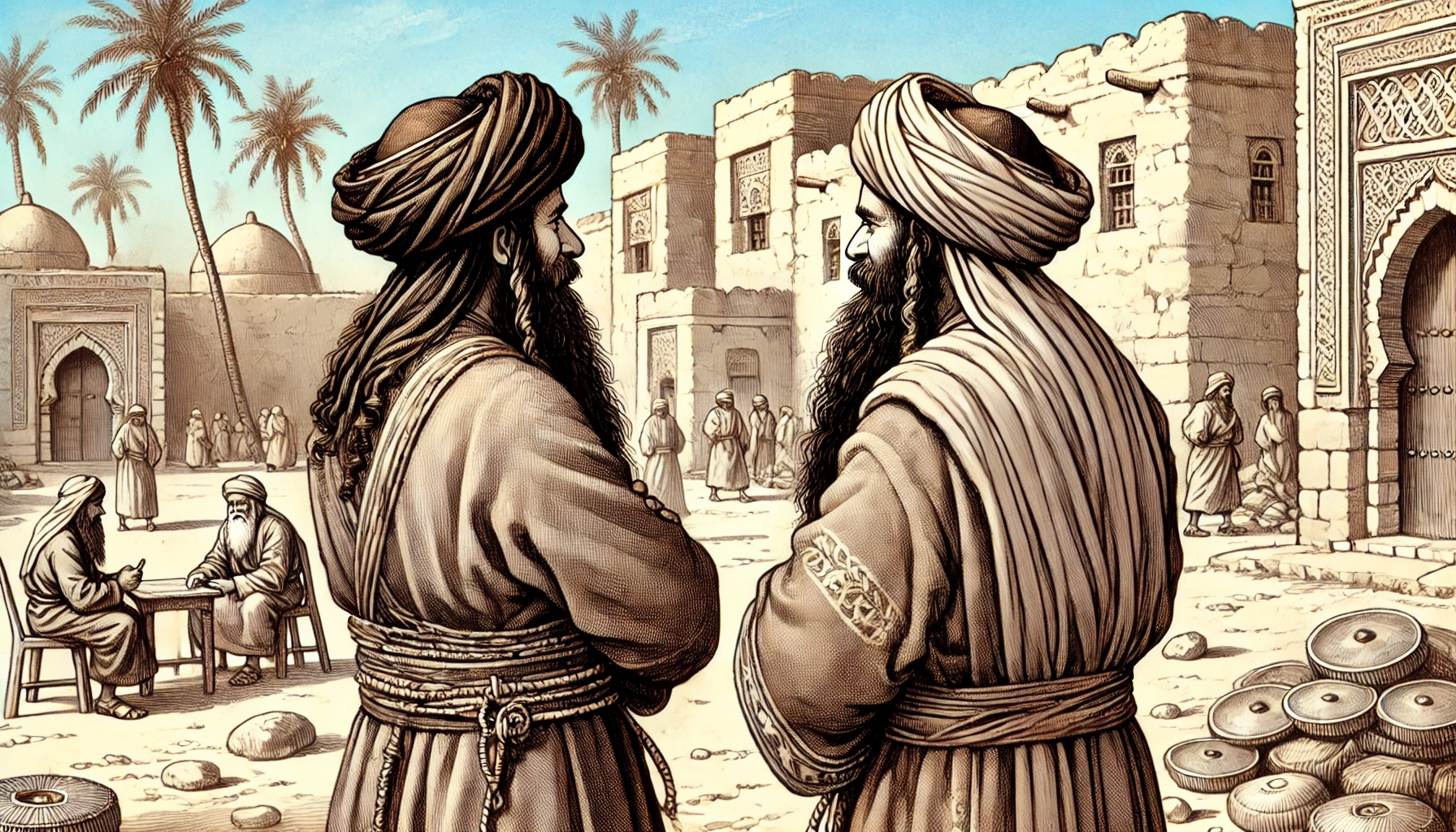
Several Jewish tribes also populated the area around Medina. Muslims already felt a certain affinity with these “People of the Book,” to whom the arrival of a Prophet had been announced in the Torah. God had said to Moi’se:
“I will raise up a prophet like you from among their fellow Israelites. I will put my words in his mouth, and he will tell the people everything I command him.”
DEUTERONOMY 18.18
Who then, in the Old Testament, were the brothers of the sons of Israel if not the sons of Ishmael? Who else could have been the Prophet like Moi’se? Who, then, was more like him than Muhammad(ﷺ)? And according to Jesus’ words, the prophecy had also been fulfilled:
“But very truly I tell you, it is for your good that I am going away. Unless I go away, the Paraclete will not come to you; but if I go, I will send him to you. … He will guide you to the truth; for he will not speak of himself but only what he hears…”
john 16.7.13
Until then, Muslims had always prayed in the same direction as the People of the Book, facing the sacred city of Jerusalem. From then on, believers were asked to turn in the direction of the sacred mosque of Mecca – the Ka’ba. This change in the direction of prayer symbolized the distinction and honor bestowed on the new community of Muslims – the Umma. As Muslims returned to Abraham’s original faith, they naturally turned to the first house he built for God.
Permission to fight
Not only were the People of the Book unhappy with this change, but so were the Meccan chiefs. They were still determined to eliminate the new Muslim community and were preparing an attack on Medina. This time, finally, after years of persecution and torture, God permitted them to defend themselves:
Battle of Badr
The result was the Battle of Badr, which took place in the second year of the Hijrah during Ramadan. The thousand-strong Meccan army – three times larger than its adversary – attacked the small Muslim army. But, by divine will, the outcome was a spectacular victory for the Muslims. Some of the Meccan chiefs who had persecuted the Muslims were killed, while others were taken prisoner and ransomed at a good price. For the first time in history, prisoners of war were fed and protected on an equal footing with their captors and treated with humanity. This battle was decisive: the strength and courage of the believers shocked the Meccans and their allies despite their persistent desire to destroy Islam.
Battle after battle, the Muslims proved that they could withstand any attack. However, they narrowly escaped defeat the following year at the battle of Uhud’, which gave the Quraish the idea of attacking and exterminating them once and for all. They plotted with some Bedouins and Jewish tribes, as well as a few hypocrites living within Medina itself.
So it was in the fifth year of the Hegira that an army of over ten thousand men headed for Medina. But the Muslims were ready to defend themselves. On the advice of Salman, the Persian, they had dug wide moats around the city. The Prophet ﷺ himself took part in the preparations, and as they dug, they sang this refrain:
ALLAHUMMA LAWLA ANTA MA HTDAYNA
WA MA TASADDAKNA WA LA SALLAYNA
ALLAHUMMA LAWLA ANTA MA HTDAYNA
WA MA TASADDAKNA WA LA SALLAYNA
FA ANZIL AL-SAKINATA ALAYNA
WA THABBIT AL-AQDAMA IN LAKAYNA
Treaty of hudaibya
After a long month of siege, the Meccans were still unable to penetrate the city and began to grow impatient. Gradually, mistrust began to spread among the allied forces. As a result of internal quarrels and difficult weather conditions, they finally folded their tents and withdrew.
This was a great victory for Islam. Medina was never attacked again. The following year, the sixth after the Hegira, a truce was decreed between the Meccans and the Prophet (PBUH). Although the treaty’s terms were clearly in favor of the Quraish, it was still a victory for Islam. It became known as the “Treaty of al-Hudaybiyya”. The period of peace that followed was a chance for many non-Muslims to see for themselves the benefits of the Islamic way of life. Thus, a very large number of Meccans and members of various tribes embraced Islam.
During this period, the Prophet sent letters to many governors, including the emperors of the two superpowers of the time, Persia and Byzantium, inviting them to Islam. Emperor Heraclius was on his way to Jerusalem when he received the letter bearing the seal of the Prophet ﷺ. He read: “From Muhammad(ﷺ), Messenger of God, to Heraclius, Emperor of Byzantium, peace be upon him who follows the true path. I invite you to Islam. Accept it, and you will have peace and prosperity; God will give you a double reward. If you reject it, the sins of your subjects will be your responsibility.” The letter ended with a verse from the Quran :
although the emperor recognized that this was indeed the Prophet foretold in Scripture, he felt compelled, out of loyalty to his rulers and courtiers, to reject the message. And so, sadly, the winds of destiny blew and fulfilled the prediction: the good news was ignored, and the words of the Prophet (ﷺ) came true.
The return to Mecca
Conquering Mecca
Meanwhile, in Arabia, the strength of Islam was growing rapidly. Two years after the truce concluded with the Meccans, the terms of which were constantly violated by the Quraish, the Prophet Muhammad(ﷺ) decided to march on Mecca with an army some ten thousand strong. What happened then was an unprecedented miracle and a remarkable fact in the history of religious conquests. The Prophet ﷺ took the city with scarcely a drop of blood spilled. He passed through the city gate on his camel, head bowed in humility, while all his enemies looked on.
To their astonishment, he forgave all those who had been the greatest enemies of Islam and announced a general amnesty. This was the Day of Victory, and the final chapter of the Prophet’s life was about to begin.
The overthrown idols
Thus ended the conquest of Mecca. The enemies of Islam had surrendered and were graciously forgiven. Witnessing this clemency and mercy of the Prophet (ﷺ), the people of Mecca embraced Islam without constraint. The Prophet ﷺ entered the precincts of the Ka’ba, where the three hundred and sixty idols and statues representing the false gods before which the Arabs had long worshipped were located. One by one, on the orders of the Prophet ﷺ, the idols were destroyed. This put an end to the symbols of idolatry in the Arabian Peninsula.
Finally, the Ka’ba, erected by the Prophet Abraham and his first son Ishmael, was purified and dedicated to the worship of the one God, Allah, the Lord of the worlds.
Twenty-one years had passed since the Prophet began calling mankind to acknowledge the One God, and Revelation had begun. Muhammad(ﷺ)’s mission was coming to an end.
He settled in Medina, which became the capital of the new Muslim world. Delegations from all over Arabia came to the Prophet (ﷺ) to embrace Islam. In addition, he sent groups of believers to different countries and provinces, inviting their inhabitants to embrace Islam.
Yet, at the head of all of Arabia and the surrounding lands, Muhammad(ﷺ) continued to live as a humble servant of God. He used to mend his own shoes, sew his own clothes, and serve his family like any other person.
Farewell
The farewell pilgrimage
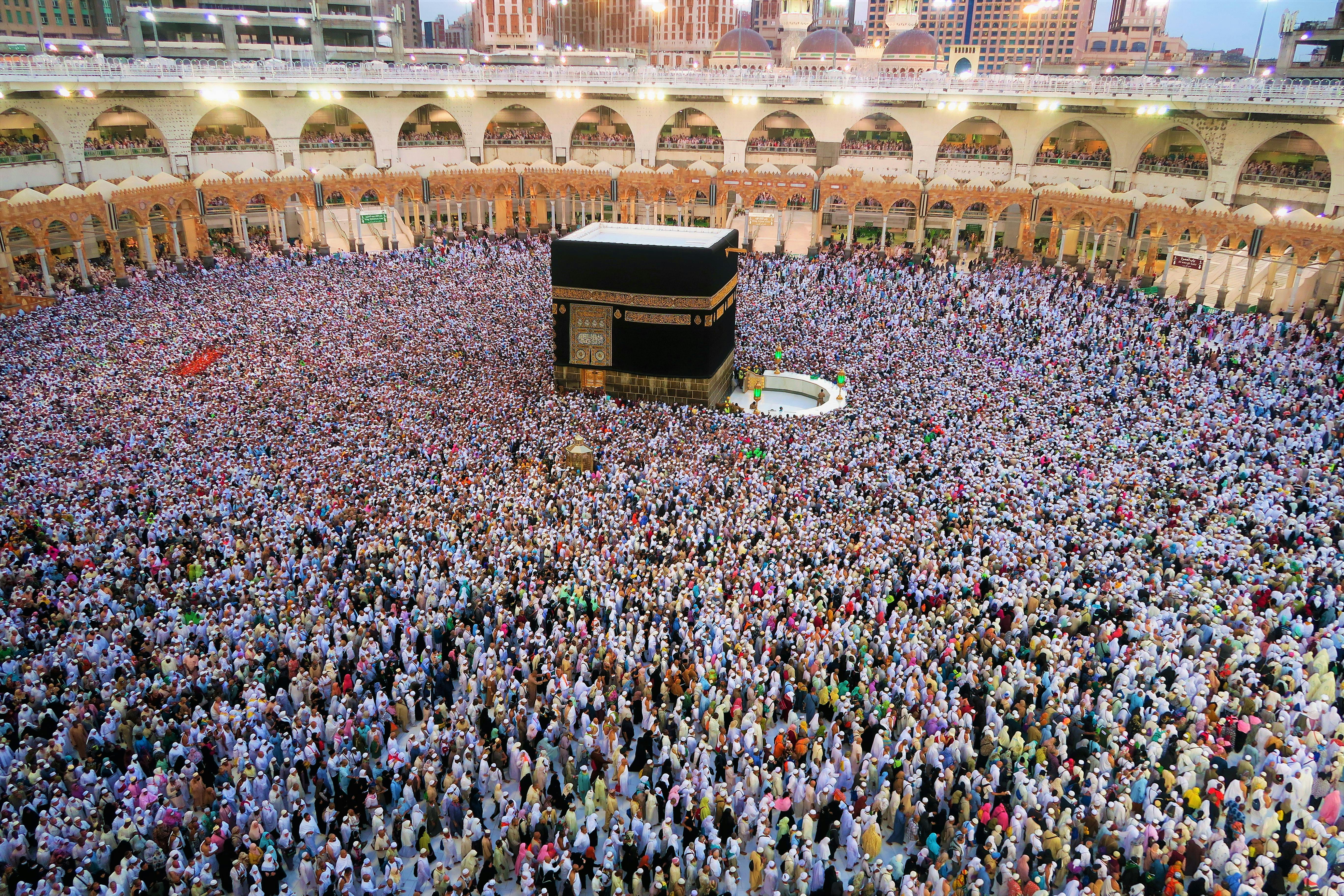
Ten years after the Hegira, the Prophet was nearing the end of his life on earth. This was the year he performed the pilgrimage (al-Hajj), the fifth and final pillar of Islam. Under a blazing sun, on the plains of ‘Arafat, the Prophet Muhammad(ﷺ) delivered his last sermon:
It was then that some of the last words of the Quran were revealed:
The Prophet’s death
A few months later, at 63, God the Most High recalled his soul. The Prophet Muhammad(ﷺ) died in his home in Medina, leaving behind only a few possessions, the world at his feet, but without a dinar to his name. The spirit of his message remains as clear and alive today as when it was delivered, so much so that human beings can witness the miracle of his life and mission, the beauty and perfection of his calling:
THERE IS NO GOD BUT GOD, Muhammad(ﷺ) is the messenger of God.

